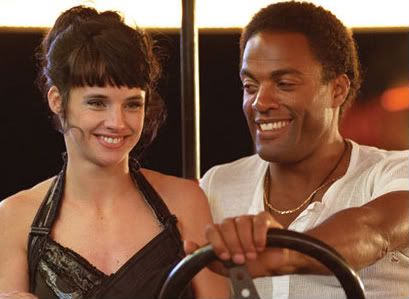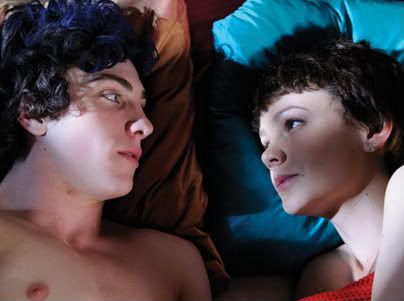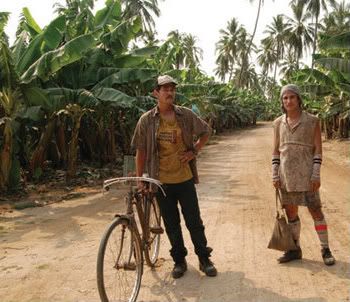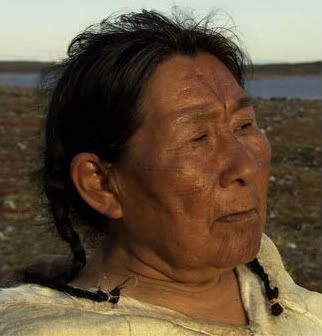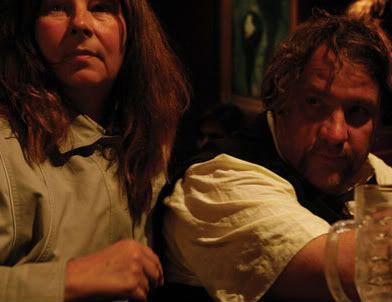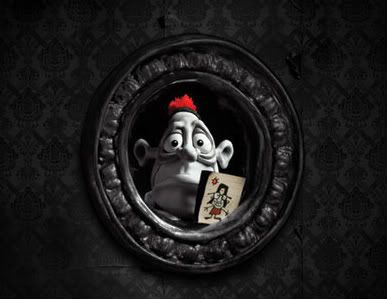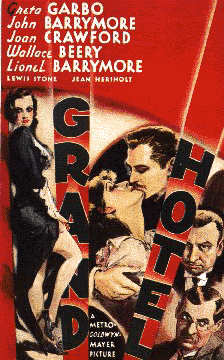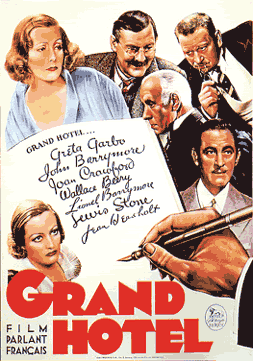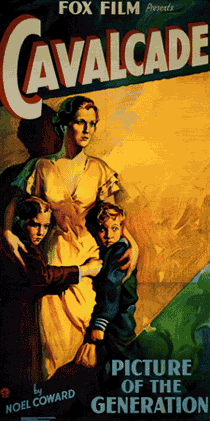
Winner Best Picture at the 1932/33 Academy Awards
This was the last time that the Academy Awards spanned from one year to the next like this. The ceremony covered an extra-long period of time so that in the next year, the ceremony would be calendar year based and cover 1934 only.
I was on a roll yesterday, and so I ended up watching
Cavalcade in addition to
Grand Hotel. This was the first Best Picture film that was both not available on DVD and that I couldn't manage to catch on television, so I ended up purchasing a used VHS tape from an Amazon seller (in perfect condition). As I've mentioned before, there are still a handful of these films that are not yet available on DVD, including
Wings and
Sunrise, though good news, Netflix now indicates that
Sunrise will be available on DVD in December 2008.
At any rate, this doesn't seem to be a very popular film now, and many online reviewers seem to feel that it has not stood the test of time, particularly since it didn't have any big-name actors. There are a number of folks to be found on the internet who are very critical of the film, calling it boring, complaining about the acting, etc. I think that is unfair to a large degree. I actually found the film quite interesting, and I liked getting a historical glimpse into a time and place that I am not quite as familiar with as I thought I was, judging from the contents of this film.
Part of the criticism of the film likely stems from the fact that it was adapted from a stage play, and it retained some elements of the stage. Not the least of those was a number of the actual cast members. But honestly, I don't mind a movie that feels like a play, in fact, there are some notable examples that I really love. I wouldn't go so far as to say I loved this movie, but I didn't find it overly stagey, at least not enough to merit the criticism. The acting, which was criticized in places for being overblown and better suited for the stage, also didn't bother me -- it seemed good enough for its day, and I didn't notice that it was glaringly overblown, so I can't complain about that. Sure, as I've said before, it's not modern, natural acting, but it wasn't meant to be -- it was more along the lines of what was valued at the time.
The film covers a sweeping timeframe, from New Year's Eve in 1899 through New Year's Eve in 1932, following two families, in a sort of an
Ur-Upstairs-Downstairs, seemingly a precursor to the genre that we've seen numerous times since (my favorite example and one of my all-time favorite movies being
Gosford Park). At any rate, though it covers such a long period of time in the lives of these two British families, very much like
Cimarron did, I thought that the pacing was much better, the different major times and milestones were hit, dealt with evenly, and flowed into the subsequent scenes much better by far.
As the time-period and locale hints, this is yet another film that dealt with World War I, though it was merely one of many elements. Still, some critics have pointed at that it was also an anti-war film, though in a subtler way than
All Quiet on the Western Front. What I thought it conveyed even better than that, though, was a portrayal of a rapidly, almost drastically changing world, and the way that affected the lives of the people in it. Things must have seemed like they were moving fast and faster to people living in such a time, in ways that were good and bad, and its no surprise at all that people wanted to capture that feeling first on the stage and then on film. One of the elements of the film that I thought actually best conveyed this rapidly changing, bustling feeling was the seemingly endless noise and terrible crush of people in many of the scenes in the film -- it gave it an almost overwhelming feeling at times, one which I thought seemed appropriate for the ways the world was changing then.
It seems fitting that this film that culminated with the Jazz Age and then the early years of the Great Depression should win the Best Picture Award for 1932/33, the last awards ceremony to take place in pre-
Hays Code Hollywood. It was sort of like shaking up a cocktail of change and disillusionment, and then watching the reactionaries circle in for the kill. You know, I just did a little Wikipedia research, and I find it very interesting that the Hays Code took effect the very year after Prohibition was repealed. I wonder what that
means? It seems significant to me, somehow. At any rate, I'm getting off on a tangent. But my point was, it was interesting to see some of the latter scenes in this film, the dancing and drinking and Jazz and empty churches, and reflect that in the very next year, strict morality codes were imposed on film. If you haven't read about the Hollywood censorship guidelines, I recommend doing so -- it's very interesting, and it also explains why you can watch films from the 20s and be shocked by the
lack of prudishness -- so funny the way these things go in cycles, time and time again. After all, the Victorians were shocked by the Edwardians. Ahem, but again, I think I'm getting tangential. At any rate, if you have the time, I highly recommend reading through that Wikipedia link about pre-Code films. The Hays Code really shaped the future of film from the time it was put into place in 1934, in some ways that actually weren't bad (plots about "headstrong, able, employed women," for example). But at any rate, after this film, I'm about to embark on a LONG series of films that did have to adhere to The Code and live up to the values of the Legion of Decency (no joke!) and the Roman Catholic church until (I am not kidding here)
1967. I am seriously starting to love this Oscar project. It's giving me a much broader historical perspective and understanding, as seen through film and my related research, than I ever would have expected. Bring it on!
